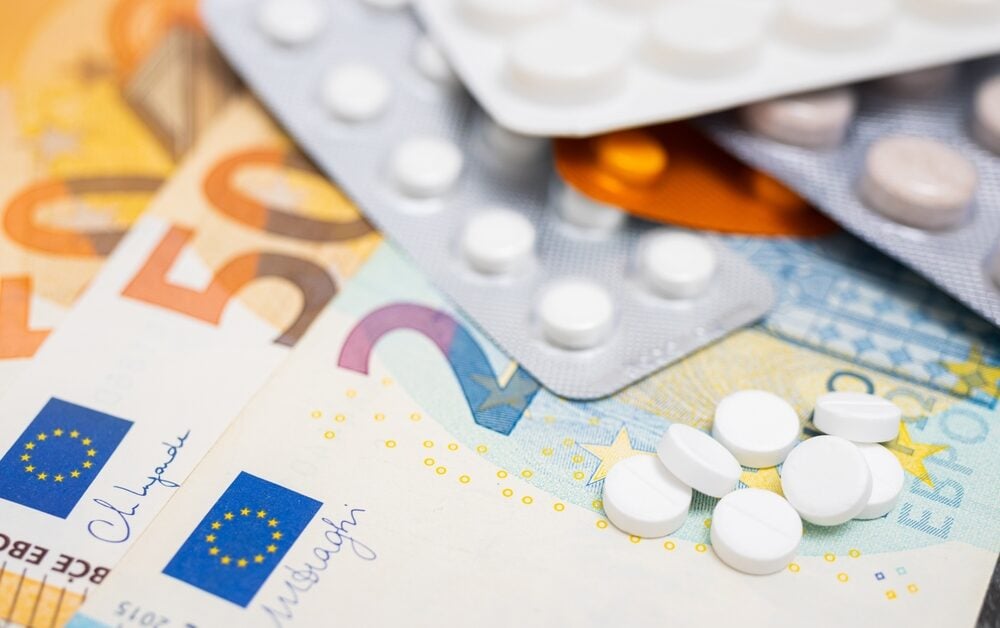By Andrew Sharples, co-head of EIP’s UK litigation team
In April, the European Commission published proposed legislation (specifically a new Regulation and a new Directive) aimed at reforming EU legislation in relation to pharmaceuticals.
These proposals, if adopted, will affect pharmaceutical regulation in several ways. In relation to IP specifically, they will affect the periods of data exclusivity and bolar exemptions.
Data exclusivity
Under the EU’s current framework, a newly-authorized pharmaceutical will benefit from eight years of data exclusivity and two years of market exclusivity, i.e. “the 8+2 regime.”
The Commission is proposing to adjust this to a basic 6+2 regime, by reducing the period of data exclusivity by two years. However, there would be the possibility to extend this by up to four additional years, if certain criteria are met.
These are: If the product addresses a “high unmet medical need,” an additional six months will be available; for additional therapeutic indications with significant clinical benefit there will be a further 12 months’ exclusivity; or if, for new active substances, comparative clinical trials are conducted, this will result in an additional six-month period of exclusivity. Finally, in order to encourage the availability of pharmaceuticals in all member states, by sufficiently marketing the product in every authorized EU state, a further 24 months of exclusivity can be obtained.
There are also proposed changes to the regime in relation to orphan drugs.
The exclusivity period is reduced from 10 to nine years… although 10 years of exclusivity will still be available where there is a “high unmet medical need.” Also, well-established orphan products will only be granted five years exclusivity. An additional 12 months’ exclusivity will be available in return for marketing the product in every authorized EU Member State, and an additional 12 months will also be available for obtaining additional authorization for new orphan conditions; this 12 month extension of exclusivity will be available twice.
Also in relation to the orphan medicines regime, the two years additional market exclusivity on completion of a pediatric investigation plan is abolished, but a six month SPC extension would be available, in line with the pediatric extension currently available for non-orphan drugs.
Encouraging new antibiotics
Data exclusivity is also proposed to be used as an incentive to encourage new antibiotics. In return for seeking authorization for a ‘priority antimicrobial,’ a transferable data exclusivity voucher will be awarded. This can be used to extend data protection of a product for 12 months. That product could be the priority antimicrobial but need not be; instead the voucher could be used for another product, provided that product is within the first four years of data protection. The voucher would also be transferrable for use by another company.
While these proposed amendments would potentially enable a longer exclusivity period of 12 months, it seems unlikely that will be achieved in many cases. Instead the overall tenor of the proposals appears to be a desire to reduce periods of exclusivity. Whether you consider that to be a good or bad thing will depend upon your personal view point. Clearly some of the aims of these changes, such as the desire for products to be marketed throughout the EU, and incentivising new antibiotic development, are laudable. Nevertheless, these revised processes entail a significant, and undesirable, increase in the complexity involved in managing pharmaceuticals.
Harmonized EU bolar exemption
Although EU law makes provision for bolar exemptions to apply under national patent law, EU member states have applied this exemption differently. The Commission has therefore sought to harmonize the position.
The proposal to do so would mean that a patent or SPC would not be infringed by activities conducted to generate data for an application for:
(i) a marketing authorization of generic, biosimilar, hybrid or bio-hybrid medicinal products, and for subsequent variations;
(ii) health technology assessments (as they are defined in Regulation (EU) 2021/2282);
(iii) pricing and reimbursement.
The activities would have to be done exclusively for these purposes, but provided that is so, the exemption would apply to the submission of the application for a marketing authorization as well as activities by third party suppliers and service providers.
This approach clarifies that wider regulatory processes, such as pricing, benefit from the exemption, and the fact that activities by third parties are also specifically exempted does clarify a point that was previously unclear. However, the proposal as drafted would apply not only to patents covering the medicinal product for which data is being generated, but potentially any patent used in the generation of the data, for example patents relating to research tools and devices. It is by no means clear if this was intentional (or even whether such an exemption would be compliant with TRIPS). This may be a point leading to the proposal being amended during the legislative process.
Greater harmonization of the bolar exemption throughout the EU can only be a good thing, as it should simplify the process of conducting clinical trials and obtaining regulatory approval in Europe. In particular, providing clarity as to the position in respect of third party providers is to be welcomed.
However, this will still not result in an entirely harmonized position within the EU, as some countries, such as France and Germany, have a broader bolar exemption extending to clinical trials for innovative drugs rather than purely for generic authorizations.
In each case, these proposals will now move to be considered by the European Parliament and Council before they can pass into law.





